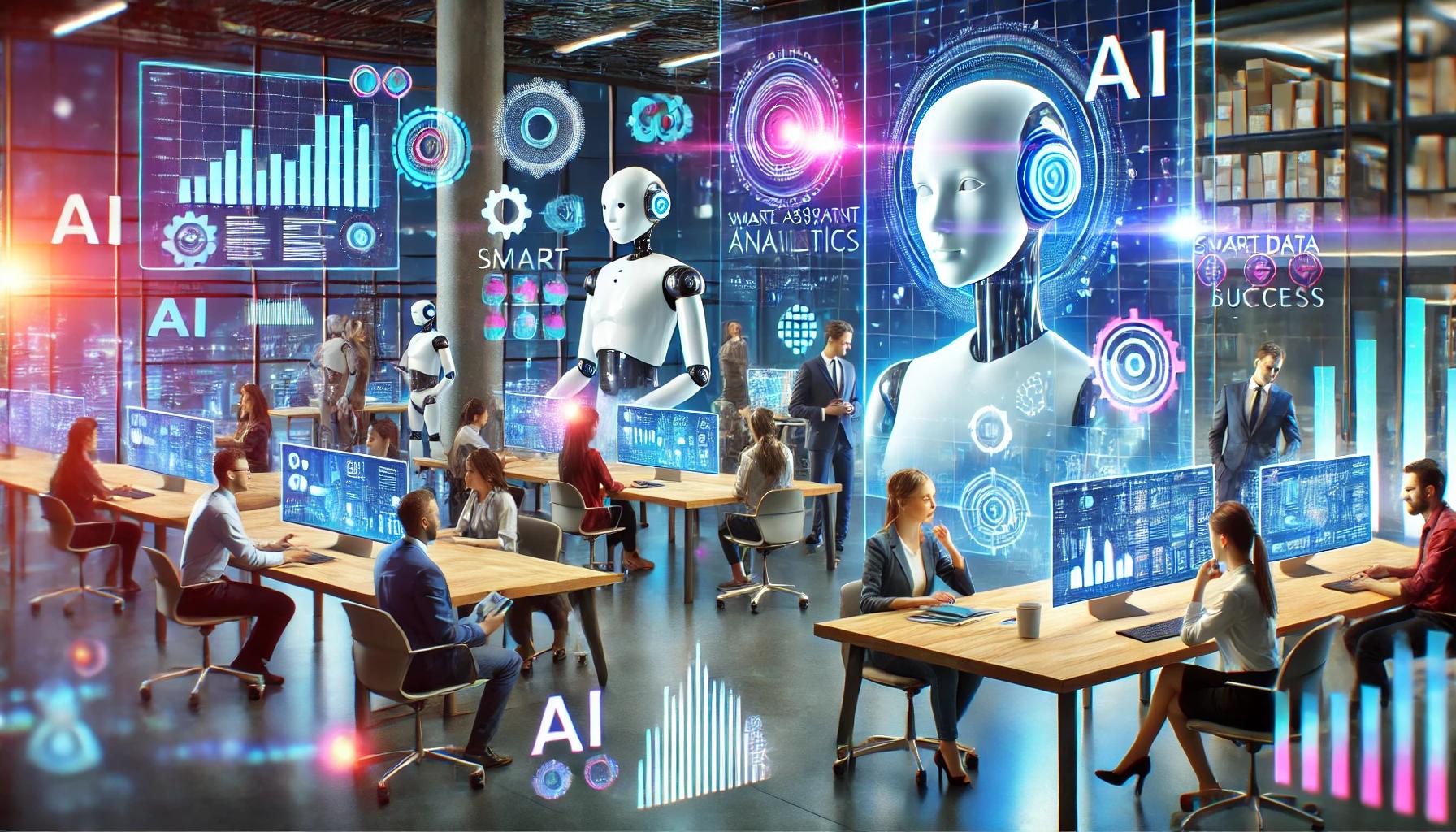How Are Companies Using AI Agents? Here’s a Look at Five Early Users of the Bots
Artificial Intelligence (AI) has rapidly transformed the landscape of various industries, enabling businesses to innovate and streamline processes like never before. One of the most exciting developments in this technological revolution is the rise of AI agents—autonomous systems designed to perform tasks traditionally carried out by humans. This blog post explores how companies are utilizing AI agents, highlighting five early adopters and the innovative ways they are integrating these bots into their operations.
1. Customer Service Enhancement
One of the most common applications of AI agents is in customer service. Companies are increasingly deploying chatbots to handle customer inquiries, providing quick responses and 24/7 availability. For instance, Sephora has implemented an AI chatbot that helps customers with beauty advice and product recommendations. This not only enhances the customer experience but also allows human agents to focus on more complex queries.
Furthermore, AI agents can analyze customer interactions to improve service quality over time. By gathering insights from conversations, businesses can fine-tune their responses and identify common issues, leading to more effective customer service strategies.
2. Streamlining Internal Processes
Another application of AI agents is in the realm of internal operations. Unilever, for example, has integrated AI bots into its human resources (HR) department to automate routine tasks such as scheduling interviews and processing employee queries. By doing so, Unilever has significantly reduced the workload on its HR staff, allowing them to concentrate on strategic decision-making and employee engagement.
AI agents not only improve efficiency but also help organizations maintain consistency in their internal processes. With bots handling repetitive tasks, companies can minimize human error and ensure that standard operating procedures are followed.
3. Data Analysis and Insights
In today’s data-driven world, businesses are overwhelmed with vast amounts of information. AI agents are proving invaluable in sifting through this data to extract actionable insights. IBM has developed AI systems that can analyze market trends and consumer behavior, enabling companies to make informed decisions based on real-time data.
For instance, IBM’s Watson can process unstructured data from various sources, such as social media and customer feedback, to provide businesses with a comprehensive view of their market landscape. This capability allows companies to identify emerging trends and adapt their strategies accordingly, giving them a competitive edge.
4. Personalized Marketing Campaigns
Personalization is key to effective marketing, and AI agents are revolutionizing how companies approach their marketing strategies. Netflix is a prime example of a company that leverages AI to create personalized content recommendations for its users. By analyzing viewing habits and preferences, Netflix’s AI algorithms can suggest shows and movies tailored to individual tastes.
This level of personalization not only enhances user satisfaction but also increases engagement and retention rates. Businesses employing similar AI-driven marketing strategies can expect to see improved conversion rates and customer loyalty as a result.
5. Risk Management and Fraud Detection
AI agents are also making significant strides in risk management and fraud detection. American Express utilizes AI algorithms to monitor transactions in real-time, identifying and flagging potentially fraudulent activities. By analyzing patterns in spending behavior, the AI system can alert the company to suspicious transactions, minimizing financial losses and protecting customers.
In addition to fraud detection, AI agents can assist in assessing risks associated with lending and insurance. By analyzing a plethora of data points, these systems can provide insights that help organizations make more informed decisions when it comes to risk exposure.
The Future of AI Agents
As we look to the future, it’s clear that the potential applications of AI agents are vast and varied. From enhancing customer service to revolutionizing marketing strategies and improving internal operations, these bots are set to play an increasingly important role in business.
However, despite the benefits, companies must also navigate challenges associated with AI integration. Issues such as data privacy, ethical considerations, and the need for human oversight will continue to shape how businesses implement AI agents moving forward.
Balancing AI and Human Interaction
While AI agents offer numerous advantages, it is crucial for companies to strike a balance between automation and human interaction. Customers often appreciate the efficiency of AI, but they also value the empathy and understanding that comes from human representatives. Businesses should consider adopting a hybrid approach, where AI agents handle routine tasks while human agents manage more complex interactions.
This strategy not only maximizes efficiency but also fosters a positive customer experience, ensuring that clients feel valued and understood. As companies navigate this evolving landscape, maintaining a focus on customer satisfaction will be essential.
Conclusion
The rise of AI agents marks a pivotal moment in the evolution of business processes. Companies like Sephora, Unilever, IBM, Netflix, and American Express are leading the charge in leveraging these innovative tools to enhance their operations, improve customer experiences, and drive growth.
As organizations continue to explore the potential of AI agents, embracing the technology responsibly and ethically will be key to unlocking its full potential. The future of AI in business is undoubtedly bright, and those who adapt and innovate will be well-positioned to thrive in the new landscape.



